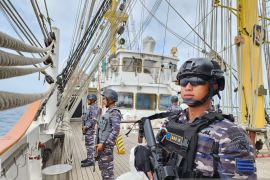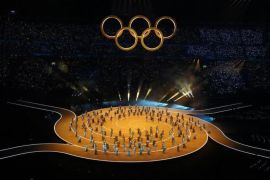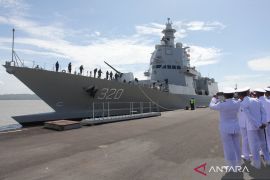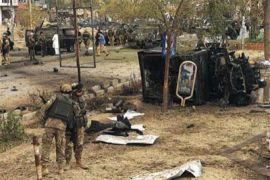As the Costa Concordia`s owners blamed their captain for veering shorewards on Friday in a bravura "salute" to residents of a Tuscan island, the giant ship slid a little, threatening to plunge its whole gigantic carcass and 2,300 tonnes of fuel below the Mediterranean waters of the surrounding nature reserve.
The slippage forced rescuers to suspend for a few hours their efforts to find anyone still alive after three days in the capsized hull, resting on a jagged slope outside the picturesque harbour on the island of Giglio. Six bodies have been found.
Most of the 4,200 passengers and crew survived, despite hours of chaos.
An Italian coastguard official told Reuters late on Monday that the nummber of people missing had been revised up to 29 - 25 passengers and four members of staff - from 16, showing how much uncertainty still surrounded the disaster.
Another maritime official said later that 10 Germans were thought to be among the missing passengers.
The 114,500-tonne ship, one of the biggest passenger vessels ever to be wrecked, foundered after striking a rock just as dinner was being served on Friday night. It quickly rolled on its side, revealing a long gouge below the waterline.
Firefighters` spokesman Luca Cari said there were still small movements of the vessel but they were not considered dangerous. However, searches were suspended overnight and would resume at daybreak.
Another senior firefighter, Luciano Roncalli, told Reuters that all the unsubmerged areas of the liner had been searched, indicating faint hopes of finding more survivors in the flooded and upturned maze of luxurious state rooms and tennis courts, bars and spas that are now submerged beneath the sea.
Environment Minister Corrado Clini said he would declare a state of emergency because of the risk that the ship`s fuel would leak into the pristine Tuscan Archipelago National Park.
No fuel spillage has been detected so far, he said on an Italian television show due to air on Monday evening.
Should rougher seas dislodge the wreck and cause it to sink or break up, that could scupper any hopes for the owners, a unit of Florida`s Carnival Corp., of salvaging a liner which cost hundreds of millions of dollars to build just six years ago.
"Salute" to shore
Investigators say the ship was far too close to the shore and its owners, Costa Cruises, said the captain, who has been arrested, had carried out the rash manoeuvre to "make a bow" to people on the island, who included a retired Italian admiral.
The skipper denies charges of manslaughter and his lawyer has said his actions saved many lives.
The father of the ship`s head waiter told Reuters his son had telephoned him before the accident to say the crew would salute him by blowing the ship`s whistle as they passed close by Giglio, where both the waiter, Antonello Tievoli, and his 82-year-old father Giuseppe live.
"The ship obviously came too close," the elder Tievoli said. "I don`t know if Antonello asked the captain to come near, but the responsibility is always the captain`s."
The captain, Francesco Schettino, was arrested on Saturday.
He is accused of manslaughter and abandoning his ship before all those on board were evacuated. Prosecutors say he also refused to go back on board when requested by the coastguard.
Costa Cruises chief executive Pier Luigi Foschi on Monday blamed errors by Schettino for the disaster. He told a news conference the company would provide its captain with any assistance he required. "But we need to acknowledge the facts and we cannot deny human error," he added.
"These ships are ultra-safe. It is an exceptional event, which was unforeseeable," he said, fighting back tears.
He said the ship deviated from its correct route and Schettino had contravened safety procedures. "The company disavows such behaviour, which caused the accident," he said.
Foschi said company vessels were forbidden to come closer than 500 metres to the Giglio coast. Investigators say the liner, designed as a floating pleasure palace for over 3,000 paying customers, was about 150 metres (yards) offshore when it hit the rocks that tore a long gash in its thousand-foot hull.
Schettino denies being too close to the coast and says the rock he hit was not marked on charts.
His lawyer, Bruno Leporatti, issued a statement saying Schettino was "broken-up, troubled and saddened by the loss of life". But he believed he had saved many lives by carrying out a difficult emergency manoeuvre with anchors after the accident, which turned the ship closer to the shore.
(C003)
Editor: Ella Syafputri
Copyright © ANTARA 2012





